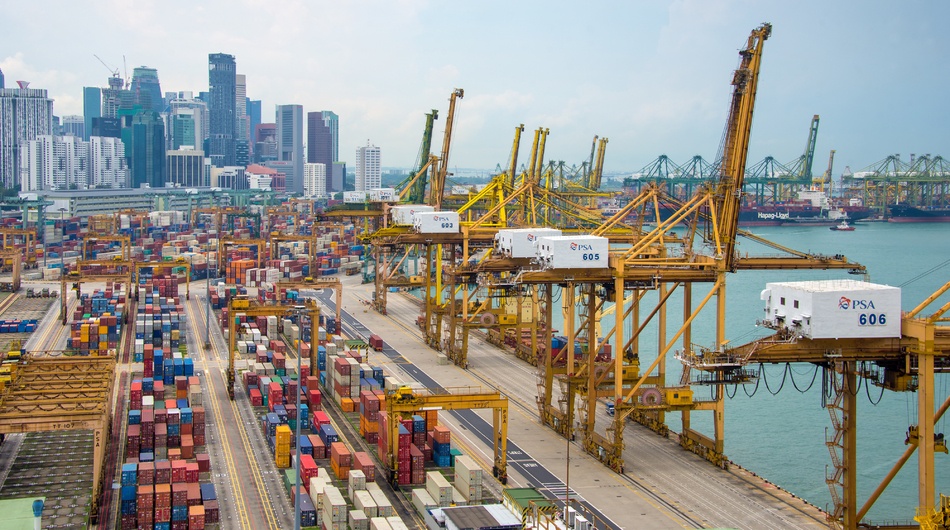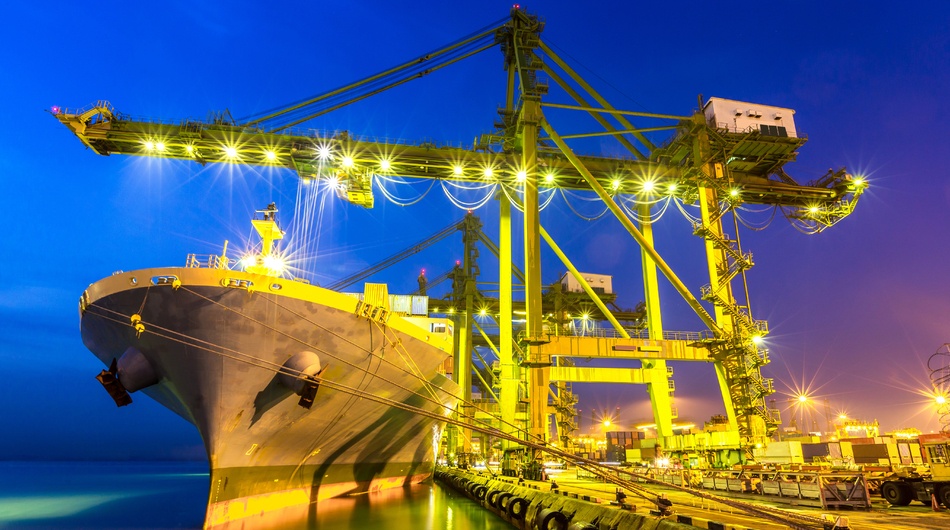
Photo credit: delcreations / 123RF.
Given that startups often face stormy waters and unpredictable weather, it’s a wonder they haven’t yet dealt more with maritime and shipping – which faces these conditions literally as well as figuratively.
That’s what port operator PSA International is trying to encourage with PSA Unboxed – its venture capital arm. PSA Unboxed runs an incubation program for startups that want to tackle challenges in PSA’s wheelhouse. It launched last May with an initial fund size of US$14 million.
PSA, having spun out of Singapore’s port authority, is one of the world’s largest port operators. The company now operates 40 terminals in 16 countries in Europe, Asia, and South America. It is responsible for 10 percent of global container processing.
New ports of call
A lot of startup verticals that have deep industry connections usually involve people who jumped ship to start their own company or join a leaner organization. With fintech, for example, you get startups by a lot of ex-bankers or traders. There isn’t currently such a notable migration for shipping and port management.
It’s not a sexy industry but it’s an industry with a lot of areas to work in.
“It’s not a sexy industry,” PSA Unboxed team lead Elton Fong tells Tech in Asia. “It’s not quite there in terms of attracting people’s attention. But it’s an industry with a lot of areas to work in.”
The cargo freight process hasn’t changed for decades, he explains. Ports nowadays have increasingly modern equipment – PSA uses automated crane systems and has a research and development unit that looks into tech like automated vehicles and augmented reality applications. But the industry still uses the same old containers. The jobs of stevedores – the industry term for dock workers who help load and unload cargo – have been largely unchanged for all these years and are very hard to automate.
As we take a tour on the dock behind Singapore’s Terminal 3 building, navigating through canyons made out of containers and passing under colossal cranes picking up crates from gargantuan ships, the potential ways startups can help are visible far and wide.
Automated systems could help load and unload cargo onto ships faster; connected sensors could monitor conditions on the dock to ensure safety and more efficient traffic; self-driving vehicles could lug containers around. Potential solutions include software to help process ship traffic more efficiently, or blockchain applications to improve shipping documentation. Robotic systems could gather environmental data from the sea and air. The list goes on.
So PSA Unboxed is on the lookout for startups that can help bring some of their out-of-left-field thinking on board. Areas of interest include autonomy and robotics, smart connected systems, health and safety management, integrated and connected port operation systems, and more.
The company’s thinking is to find startups that could come up with useful ideas that PSA can apply to its business or partner with. “The first part we consider is how relevant [a startup] is to us,” Elton says. “Can we find a place for it, can we be its customer? Could it be the next big business we want to be in?”

Photo credit: vichie81 / 123RF.
Elton has been with PSA for years on the investment front. He was investing in port assets for the company, traveling the world and learning more about how ports operate. “I realized that ports don’t just exist as waterfront property,” he says. “They’re part of a connected supply chain, especially on the inland side.”
Logistics, security, transportation – all are areas that directly impact port management and operation. Startups that work in those fields could bring value to PSA even if they’re not working directly on shipping and port-related problems.
Startups selected for the PSA Unboxed program get pre-seed funding of US$36,000 in exchange for an 8 percent equity stake. After that initial funding, the company will also consider follow-on investments in promising startups. It’s also willing to invest in and partner with later-stage startups that might not be a fit for the incubator but are relevant to PSA’s goals.
The company doesn’t run the six-month program like most incubators. It provides a working space and access to industry experts and mentors, but this is not an acceleration program where eight or 10 or 12 startups live and work together for a number of months. There isn’t a fixed number of startups the company looks to take on for a cohort, as it’s more important to find the right ones to work with.
The space, while modern and comfortable, is a far cry from the lavish, barista-equipped spaces other corporate incubators set up. That’s because Unboxed is still figuring out what it wants its program to be and how many startups it can find to work with. “We didn’t start by designing a very large working space, as we didn’t really know what size would be appropriate. We want to let demand drive that,” Elton explains.
High seas
PSA is not alone in courting startups to help it innovate. The Port of Rotterdam Authority launched PortXL in October 2015 to help create “the smartest port in the world.”
Singapore is embarking on the construction of its new “mega port” in the island-state’s west coast, a multi-year project whose first phase is expected to complete in 2020. The brand-new facility is bound to offer plenty of opportunities for innovation.
PSA International reported a profit of US$835.49 million in 2016, down 7.5 percent from 2015, when it earned US$908 million, despite a 5.5 percent increase in container volume. The company argued that global political and financial instability contributed to the dip in profits and said it expects similar conditions in 2017 – which also bring new opportunities.
In this climate, cultivating new ideas and solutions by young startups doesn’t seem like the worst idea in the world.
Converted from Singapore dollars. US$1 = S$1.40
This post Are ports the next industry startups can shake up? PSA Unboxed thinks so appeared first on Tech in Asia.